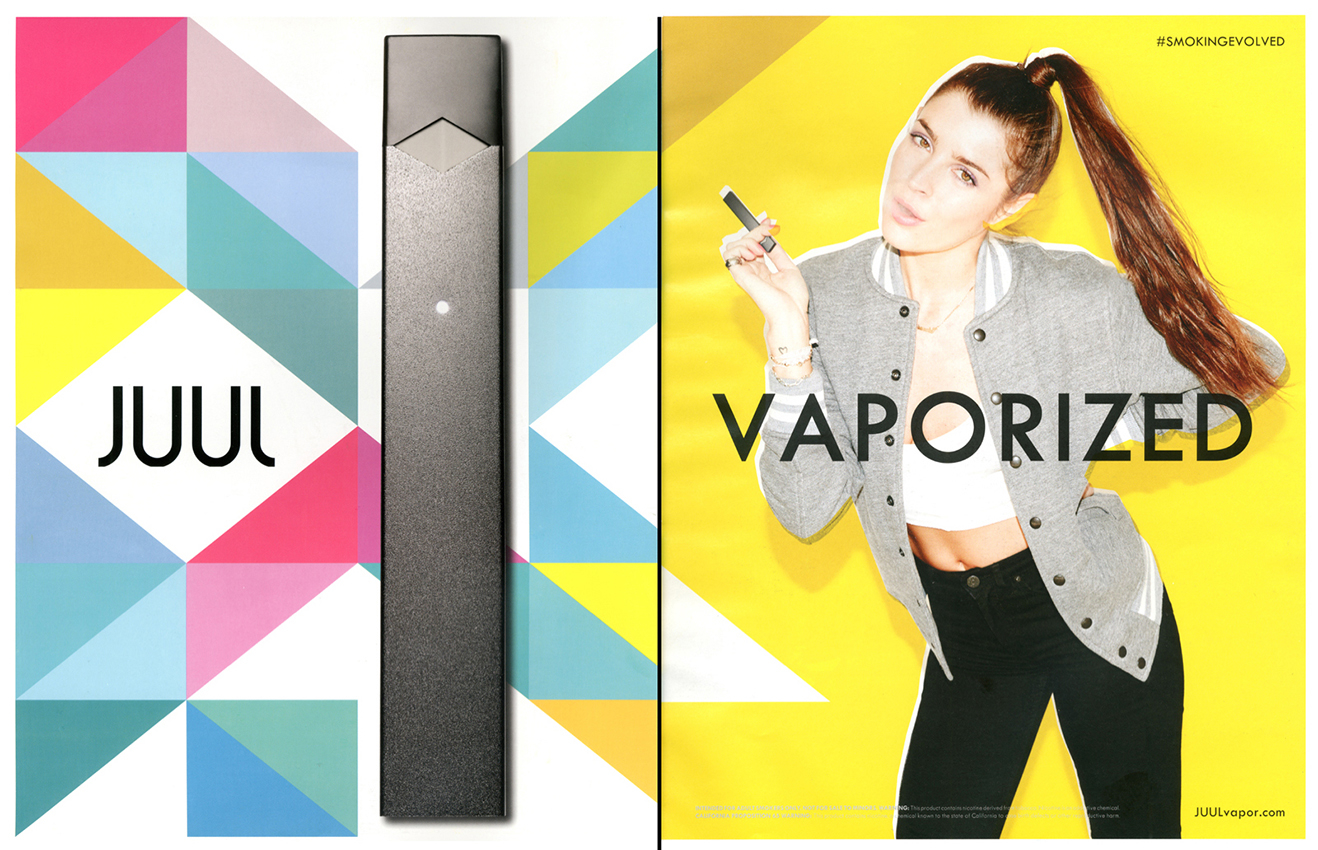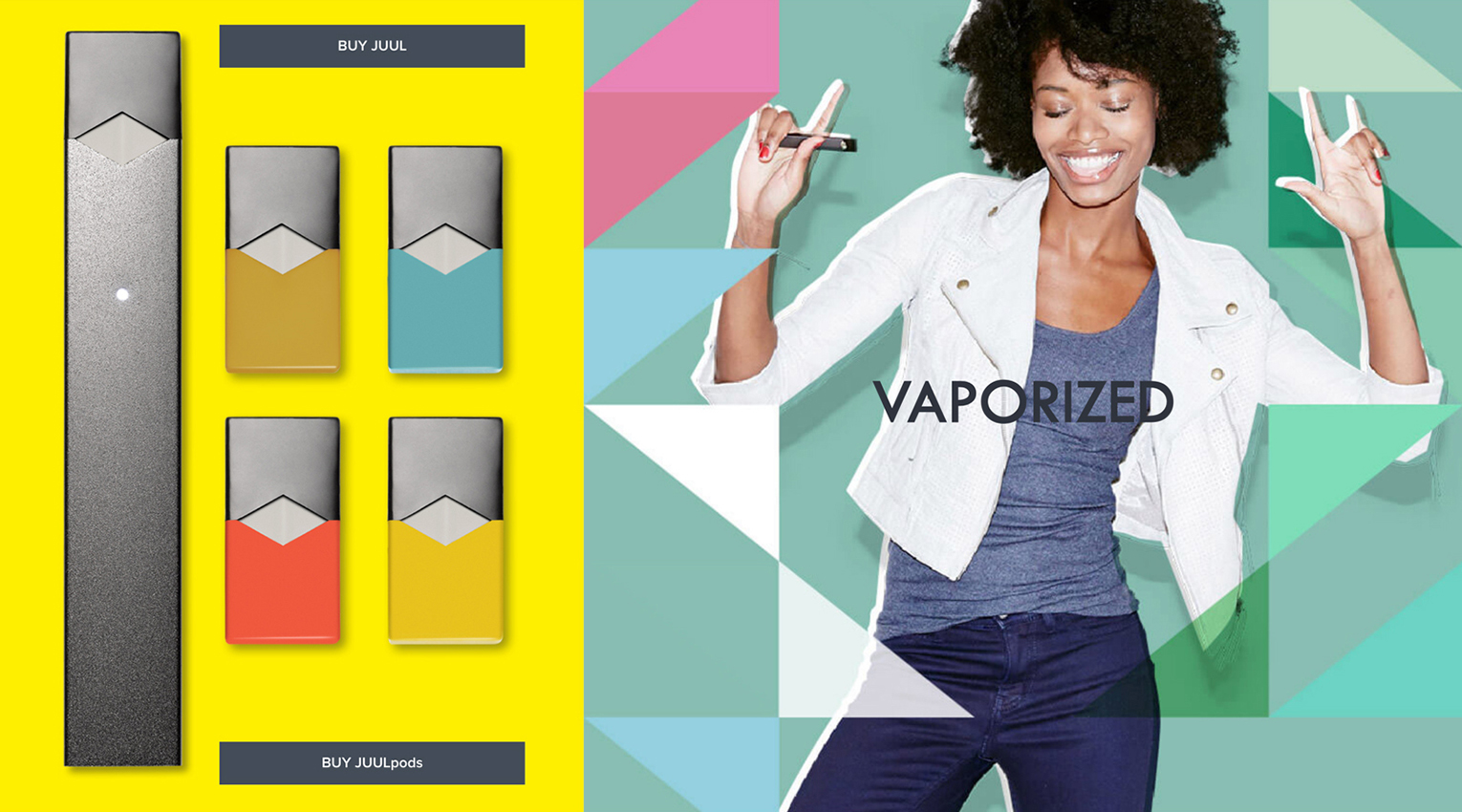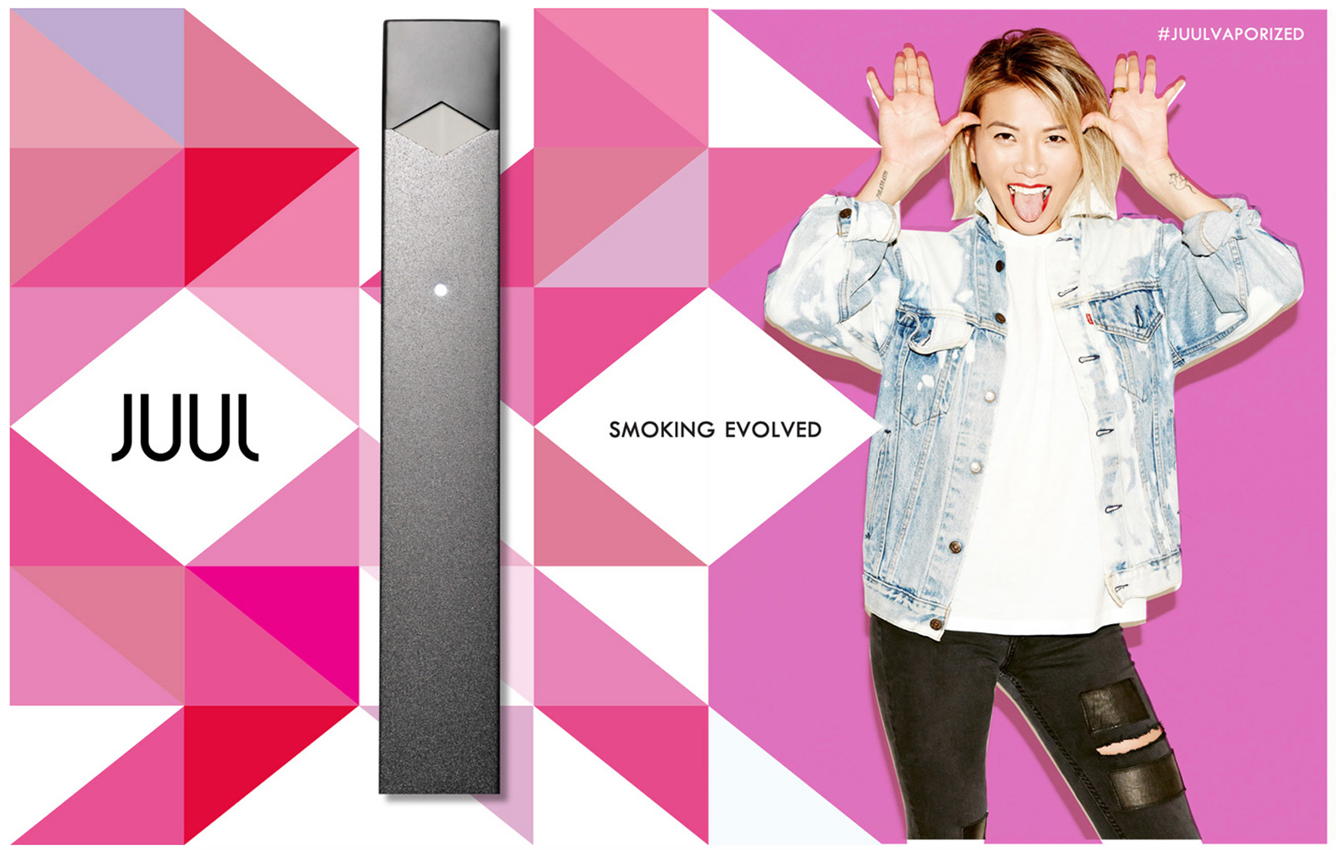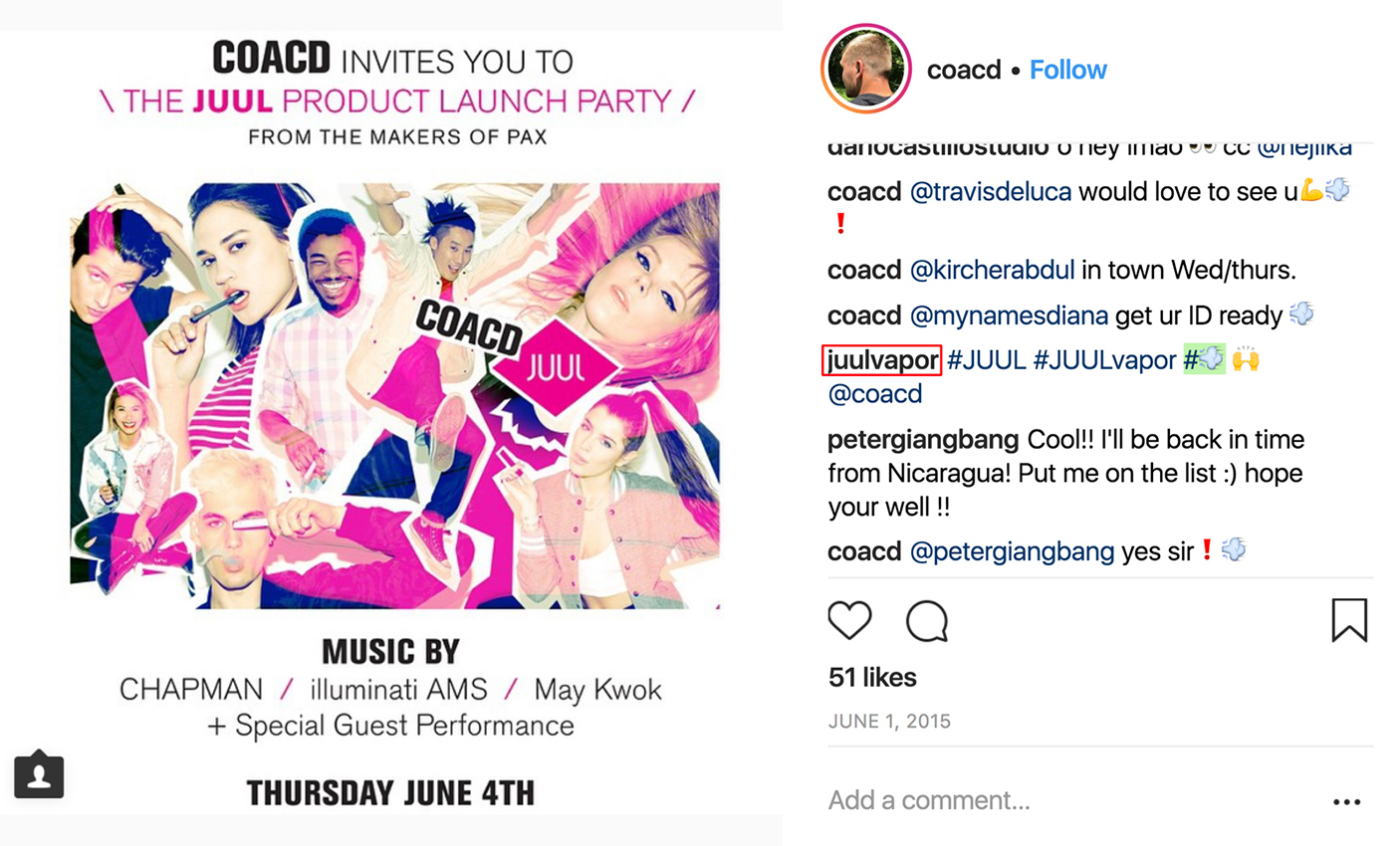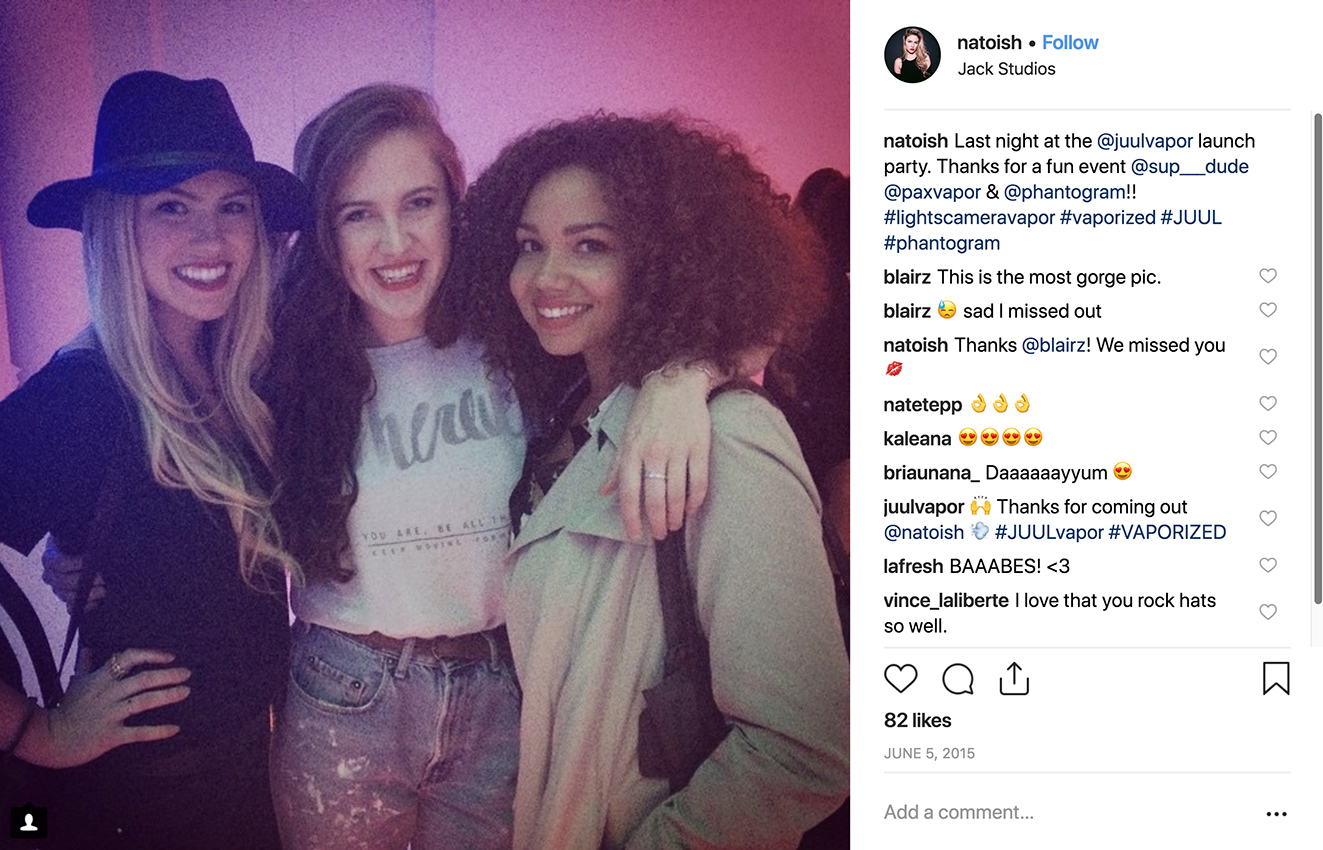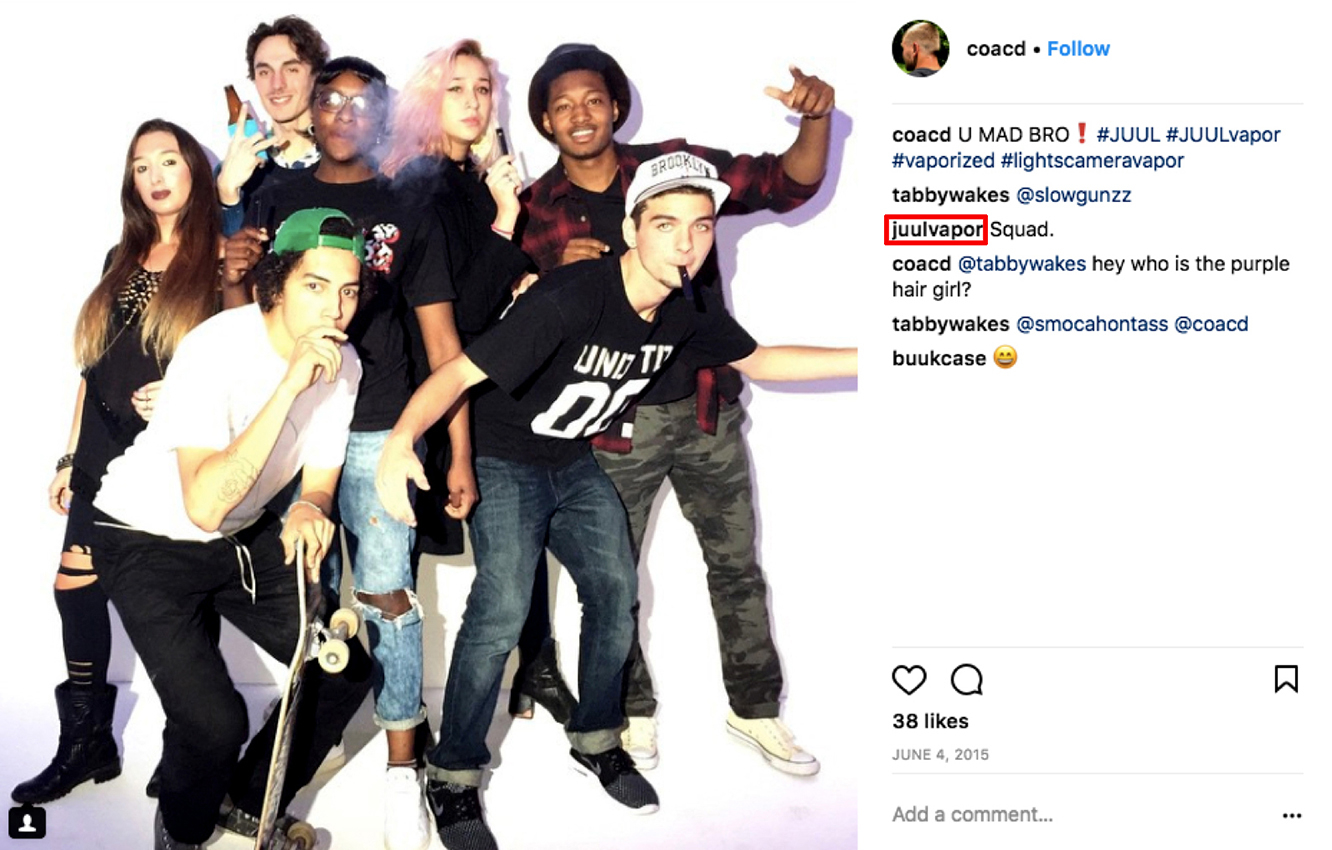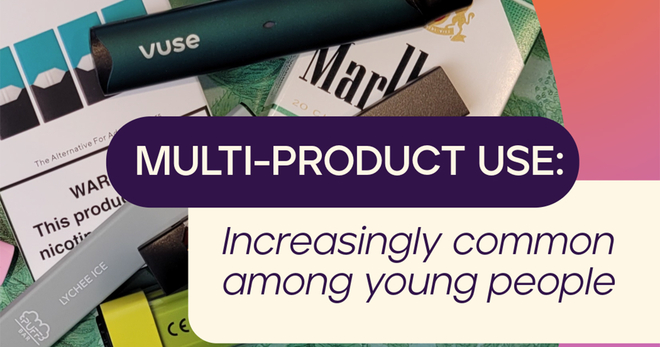JUUL keeps saying its popularity with young people is an accident
If you take the company at face value, you might believe that JUUL Labs, maker of the e-cigarette that has spurred an epidemic of youth vaping, never intended for young non-smokers to use its product.
“First of all, I’d tell them that I’m sorry that their child’s using the product,” said JUUL Labs CEO Kevin Burns in a CNBC documentary, “Vaporized: America’s E-cigarette Addiction,” answering a question about how he would respond to a parent whose child is using or addicted to JUUL, which is so popular among young people that it owns more than three-quarters of the entire e-cigarette market. “It’s not intended for them. I hope there was nothing that we did that made it appealing to them.”
JUUL says they are trying to reach adult smokers who want to quit combustible tobacco. These efforts appear to largely be unsuccessful so far – new research from Truth Initiative® shows that few adult smokers are using the product and even fewer are using it as a way to quit smoking. Of the 15% of adult tobacco users who have tried JUUL, only about one-third used the product as a way to quit, according to the study published in Tobacco Control.
The comment in the CNBC documentary is consistent with the company’s past statements, which position the product’s popularity with youth as an unintended consequence of their efforts to help adult smokers quit, not a deliberate effort to appeal to young people.
The company’s actions tell a different story.
JUUL launched the product with young, trendy models.
Is JUUL allowed to market or advertise to youth?
For its launch in 2015, JUUL spent more than $1 million to market the product on the internet, according to one research study. The brand has paid for campaigns on Twitter, Instagram and YouTube to promote images and company-sponsored ads featuring young trendy models that associate JUUL with being cool, having fun, relaxation, freedom and sex appeal.
Researchers at Stanford University Research Into the Impact of Tobacco Advertising, which hosts a collection of JUUL ads and promotional activities, found that “JUUL’s advertising imagery in its first six months on the market was patently youth-oriented” and the company used traditional tobacco industry advertising themes that may draw adolescents.
The company attracted a young following on social media.
Does JUUL market on social media to youth?
Almost half of individual users following JUUL’s official Twitter account (@JUULvapor) are underage, according to Truth Initiative research published in JAMA Pediatrics that analyzed data collected from all public active profiles following JUUL’s Twitter account in April 2018. Out of the 9,077 active individual followers, researchers estimated that 80.6% were between 13 and 20 years old.
Another Truth Initiative study analyzing JUUL-related posts on Instagram found that more than half of Instagram posts about JUUL are youth- and lifestyle-focused, underscoring “the importance of JUUL as a brand and as an eponymous product category in youth culture.”
In June 2018, JUUL Labs stopped featuring models and influencers on its Instagram, Twitter and Facebook accounts and implemented a social media policy to only feature former adult smokers who switched from combustible cigarettes to JUUL. It also modified its Twitter account to focus on corporate communication. Following criticisms of its role in the youth e-cigarette epidemic, the company deleted its Instagram and Facebook accounts in November 2018. But while JUUL has changed the nature of its social media posts, the damage can’t be undone and e-cigarettes continue to make frequent appearances on users’ social media newsfeeds and timelines.
JUUL comes in flavors that draw in young users.
What flavors does JUUL come in that appeals to youth?
Research has demonstrated that flavored tobacco products play an important role in youth vaping. Almost a third of the middle and high school students who used e-cigarettes in 2016 said the availability of flavors is a main reason they used the products, according to an report from the Centers for Disease Control and Prevention and the Food and Drug Administration. A study that included both middle and high school students found that 43% of youth who ever used e-cigarettes tried them because of appealing flavors.
When JUUL launched, it offered mango, fruit, crème, cucumber, mint, menthol and tobacco flavors in stores and online. While JUUL Labs halted in-store sales of some sweet and fruity flavors in response to backlash over its leading role in the youth e-cigarette epidemic, the vaping giant has continued to sell mint, one of the flavors that is most popular with young people.
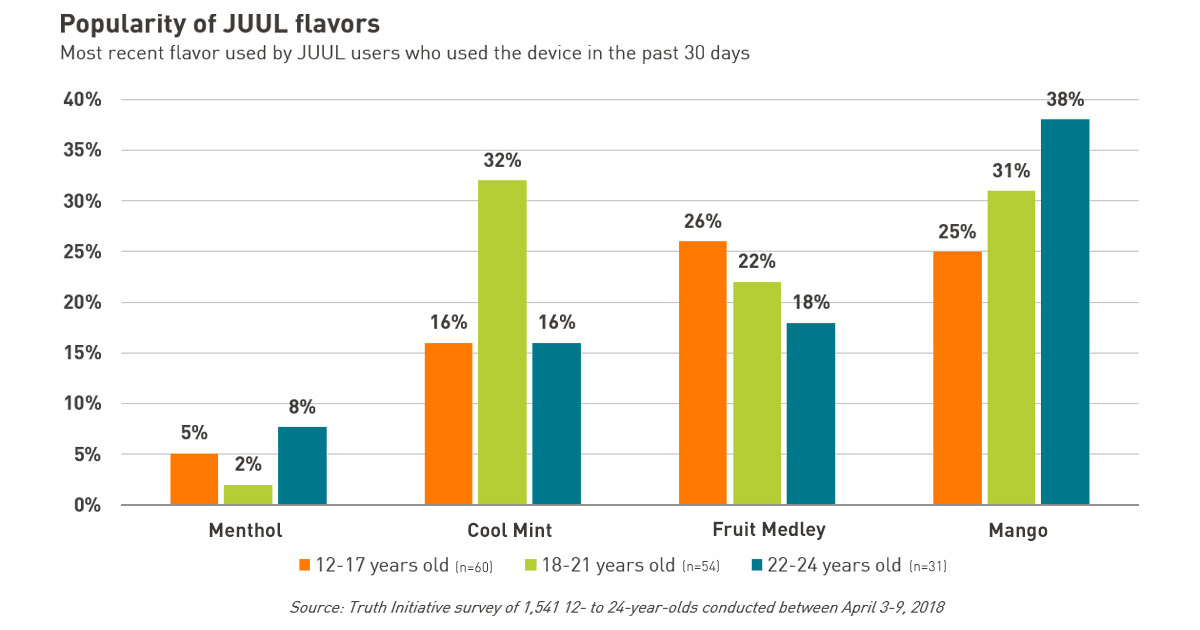
Compounding its contributions to the youth vaping epidemic, JUUL has spurred many copycat products that are also using these types of tactics to reach young people. The company is also now part-owned by Altria, which purchased a $13 billion stake in JUUL in January 2019, making it officially part of Big Tobacco, an industry with an insidious history of targeting kids with addictive products.
More in emerging tobacco products
Want support quitting? Join EX Program
By clicking JOIN, you agree to the Terms, Text Message Terms and Privacy Policy.
Msg&Data rates may apply; msgs are automated.
